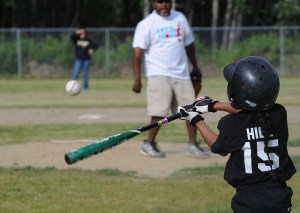Here…
• “Happy Reformation Day!” definitely is the wrong wish for anyone, but hopefully watching a music video of me singing about the life of Martin Luther made someone, somewhere giggle just a bit.
• Two more videos to watch, only one of which featured me: the first two talks in our series previewing Whole and Holy Persons: A Pietist Approach to Christian Higher Education.
• He certainly wouldn’t have been celebrating October 31st, but Erasmus’ birthday three (or four) days earlier was worth a post.
• Glad to see still more evidence that my two favorite fields of history are finally ending their estrangement.
• Is 12 Years a Slave a work of history? More true than history? A trivializing of history?
…There and Everywhere
• Tracy McKenzie belatedly concluded his series of reflections on visiting Gettysburg. I’ll understand if you stop reading this post and go spend your time with his. In fact, I’d recommend that.
• A historically black university without a History degree?

• As the World Council of Churches meets in South Korea, former WCC central committee member Wes Granberg-Michealson warned that the ecumenical movement is “hindered in directing its energy and resources in creative responses to the dramatically changing landscape of world Christianity” — in particular, the growth of evangelicalism and Pentecostalism in the Global South.
• Thaddeus Kozinski’s essay on the “uselessness” (meant as high praise) of the liberal arts ends with a quotation from Simone Weil that revisits the closing point of my Erasmus post: “All study, whether inherently useful or useless, must ultimately be prayer. Our purpose in life is to imitate that Being whose very nature is useless, for out of the contemplation of His own uselessness comes the entire universe of useful things…. our deep purpose should aim solely at increasing the power of attention with a view to prayer; as, when we write, we draw the shape of the letter on paper, not with a view to the shape, but with a view to the idea we want to express. To make this the sole and exclusive purpose of our studies is the first condition to be observed if we are to put them to the right use.”
 • Even as the New York Times recycled the year’s coverage of the demise of the humanities, one humanist pointed to a problem deeper than declining numbers of majors: “…the humanities will always appear irrelevant as long as its practitioners refrain from demonstrating a tangible link between what they preach and how they behave. In light of the current academic penchant for blaming others for undoing the humanities, it must be said that humanists as a collective should look at themselves first, and feel shame that there is so much they can say — need to say — about the world, but that they say so little at their own expense.”
• Even as the New York Times recycled the year’s coverage of the demise of the humanities, one humanist pointed to a problem deeper than declining numbers of majors: “…the humanities will always appear irrelevant as long as its practitioners refrain from demonstrating a tangible link between what they preach and how they behave. In light of the current academic penchant for blaming others for undoing the humanities, it must be said that humanists as a collective should look at themselves first, and feel shame that there is so much they can say — need to say — about the world, but that they say so little at their own expense.”
• Are college costs actually leveling off?
• I haven’t yet used Twitter as a teaching tool, but if I do, I’ll try to heed the lessons Joseph Moore learned from the “complete disaster” that ensued when he tried to “move conversations on issues raised in class into the twitterverse.”
• There’s an intriguing set of articles in the October issue of the American Historical Association newsletter (Perspectives), all four exploring facets of historical empathy.
• First Bethel gets named to a top 10 for best broomball schools (broken link – removed). Now, top 10 for healthiest colleges! (Along with lots of other evangelical — and Mormon — schools with dry campuses…)
• Lots of good pieces out there celebrating Lou Reed, but I’ll pick one — Chuck Klosterman’s at Grantland, here writing about the Reed-written debut album by the Velvet Underground: “The first track is fragile. The second track is gravel. All 11 songs make you think about things you normally ignore.”

• Last week in this space: “[Baseball] is a kids’ game.” This week: a more complex and compelling version of the argument from historian Chris Benecke… “When circumstances permit, baseball remains the sport in which the hard-earned joy of the kid and the discipline of the parent meet on relatively equal terms. Baseball remains one of the few highly regarded crafts in our culture, and one of the very few that can still be handed down from adults to children. This is less reliably the case with basketball, football, or soccer. More often than not these sports are learned with peers, rather than from parents. And this is why baseball remains the sport in which the most compelling inter-generational memories are forged.”
• Then there’s the major league player whose parents “knew nothing about baseball but raised me with a passion for music and language so great that sports seemed irrelevant by comparison.” He quit baseball in order to focus on his studies in writing and philosophy — and “because baseball was sacred to me until I started getting paid for it.”
• In any case, as another major league baseball season ends and our long winter of football deepens, let’s keep this in mind before rashly declaring the wrong sport the national pastime: “Baseball’s appeal is largely regional, while football’s is national. Baseball is followed locally, generally by fans who go to games. Football is followed on TV by fans who seldom, if ever, go to the stadium to see the games in person….”
• And one Evangeline Gehrz (not quite four) borrowed her father’s Twitter account while he was making supper:
Years from now, one of her biographers will chance upon this and wonder what she was trying to tell the world with her maiden tweet.